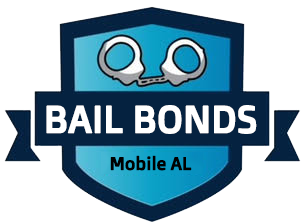
When someone is arrested and then later on released on bail, there are usually two predominant options to paying for the bond. One is called a cash bond and it is where the defendant will pay the full amount of the bond upfront to the courts then when the case closes, that money is refunded. The other option is known as a surety bond and these types of bonds are obtained through working with a bail bondsman that requires less money down but the fee is non-refundable. It may seem from the surface that cash bonds are the better option, however, for most, surety bonds are actually the better way to go. Here are some of the main benefits of going with a surety bond.
You only need a fraction of the cost on hand
As said before, cash bonds are where everything is paid upfront and intentionally, that is going to be a lot of money. Since the point of a bail bond is to create a financial incentive to ensure that the defendant doesn’t skip town, bail bond costs are meant to be prohibitively expensive with costs usually in the thousands all the way up to millions. Because of this, most would not be able to actually afford to pay the entire amount upfront which is why surety bonds tend to be the more popular option. With a surety bond, you only need a small percentage (around 10%) down in order to be released. This is because the bail bondsman who is doing the surety bond will front the rest of the money to the courts. The catch with this is that the 10% down won’t be refunded since it is considered the service fee but surety bonds make getting released from jail far more accessible to everyone even if you don’t have a lot of resources.
Your cash can stay liquid
Even if you can afford to go with a cash bond, it could still be useful to opt for a surety bond instead because the money used will be tied up for many months. Though the money will eventually be refunded, if you or a loved one are forced to spend a large chunk of your income or savings to pay it, that is money that can no longer be used in emergencies or just bills that pop up in daily life. With a surety bond, since so much less is needed, it gives you the opportunity to keep savings in the bank or avoid having to tighten your budget to the point of having difficulties paying normal bills.
You get to make the decisions on how to pay fines and fees
One major stipulation to cash bonds that often gets overlooked is the fact that all fines and fees are first deducted from cash bonds before they are returned after a case ends. This is often surprising when the defendant gets back much less than they were expecting, but another bad side to this is it is far more difficult to get refunded mistakes or overcharging errors once the money has already been taken. When you go with a surety bond, the courts will have to bill separately for these fines and in turn, you may be able to set up payment plans or work with the courts in case you see any issues.
To conclude, cash bonds can be a great option for someone who has unlimited resources and can afford to live without a large chunk of money for a while, but if you are in need of a less costly and more controllable method to keep hold of your money, then surety is the way to go.



